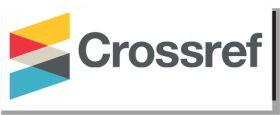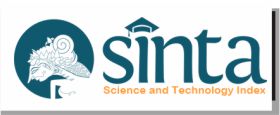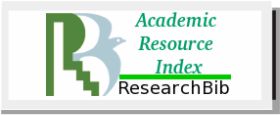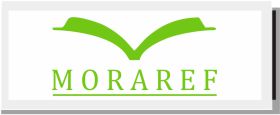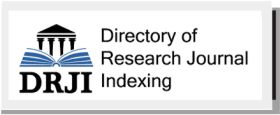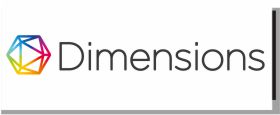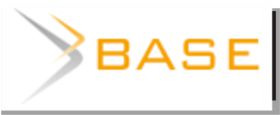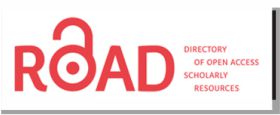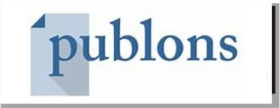Self-Enhancement, Conservation Values, and Personal Taxation Culture: How Education Level Moderates Their Relationship
Abstract
Abstrak
Penelitian ini menginvestigasi pengaruh Self-Enhancement dan Conservation terhadap budaya pajak pribadi, dengan mempertimbangkan tingkat pendidikan sebagai faktor moderasi. Melibatkan karyawan di Kementerian Hukum dan HAM di Jawa Barat sebagai subjek penelitian, penelitian ini bertujuan untuk memahami bagaimana dorongan untuk meningkatkan pandangan positif terhadap diri sendiri (Self-Enhancement) dan Conservation berkontribusi pada pembentukan sikap dan perilaku terkait kewajiban pajak. Responden pada penelitian ini sebanyak 230 karyawan di Kementerian Hukum dan HAM di Jawa Barat. Analisa data menggunakan Moderated Regression Analysis (MRA). Hasil penelitian menunjukkan bahwa Self-Enhancement dan Conservation memiliki pengaruh positif terhadap budaya pajak pribadi. Selanjutnya, tingkat pendidikan diidentifikasi sebagai moderator yang signifikan, mampu memperkuat hubungan antara faktor-faktor tersebut dan budaya pajak pribadi. Implikasi manajerial melibatkan pengembangan strategi yang memadukan Self-Enhancement dan Conservation dalam pelatihan dan kebijakan pajak, dengan penyesuaian yang disesuaikan dengan kondisi finansial individu, untuk membangun budaya pajak yang berkelanjutan di organisasi.
Keywords
Full Text:
PDFReferences
Alicke, M. D., & Sedikides, C. (2009). Self-enhancement and self-protection: What they are and what they do. European Review of Social Psychology, 20(1), 1–48. https://doi.org/10.1080/10463280802613866 Alicke, M. D., Sedikides, C., & Zhang, Y. (2020). The motivation to maintain favorable identities. Self and
Identity, 19(5), 572–589. https://doi.org/10.1080/15298868.2019.1640786
Ayodele, A. L., Enyi, E. P., & Folajimi, A. F. (2023). Effect of Sentiment, Norms and Values on Tax Compliance of Self-Employed Taxpayers in South-West Nigeria. Researchgate.Net, IX(Iii), 3294– 3303. https://www.researchgate.net/profile/Lateef - Agbetunde/publication/335227833_Effect_of_Sentiment_Norms_and_Values_on_Tax_Compliance_of_Self-Employed_Taxpayers_in_South-West_Nigeria/links/5d58e0efa6fdccb7dc4578bf/Effect-of- Sentiment-Norms-and-Values-on-Tax-
Chuenjit, P. (2014). The Culture of Taxation: Definition and Conceptual Approaches for Tax Administration. Journal of Population and Social Studies, 22(1), 14–34. https://doi.org/10.14456/jpss.2014.4
Dufner, M., Gebauer, J. E., Sedikides, C., & Denissen, J. J. A. (2019). Self-Enhancement and Psychological Adjustment: A Meta-Analytic Review. Personality and Social Psychology Review, 23(1), 48–72. https://doi.org/10.1177/1088868318756467
Erez, M., & Earley, P. C. (1993). Culture, Self-Identity, and Work (First Edit). Oxford University Press. https://doi.org/10.1093/acprof:oso/9780195075809.001.0001
Ezer, E., & Gozali. (2017). Pengaruh Tingkat Pendapatan, Tarif Pajak, Denda Pajak, Dan Probabilitas Pemeriksaan Pajak Terhadap Kepatuhan Pajak. Diponegoro Journal of Accounting, 6(3), 1–13.
Feldman, G., Chao, M. M., Farh, J.-L., & Bardi, A. (2015). The motivation and inhibition of breaking the rules: Personal values structures predict unethicality. Journal of Research in Personality, 59, 69–80. https://doi.org/10.1016/j.jrp.2015.09.003
Goldschmidt*, N., Zweynert**, J., Nerré, B., & Schuß, H. (2006). Culture and Economics. Intereconomics, 41(4), 176–199. https://doi.org/10.1007/s10272-006-0188-1
Hair, J. F., Black, W. C., Babin, B. J., Anderson, R. E., Black, W. C., & Anderson, R. E. (2018).
Multivariate Data Analysis. https://doi.org/10.1002/9781119409137.ch4
Hlastec, A., Mumel, D., & Hauptman, L. (2023). Is There a Relationship between Self-Enhancement, Conservation and Personal Tax Culture? Sustainability (Switzerland), 15(7). https://doi.org/10.3390/su15075797
Humberg, S., Dufner, M., Schönbrodt, F. D., Geukes, K., Hutteman, R., Zalk, H. W. Van, Denissen, J. J. A., Nestler, S., Back, M. D., Humberg, S., Dufner, M., & Geukes, K. (2017). Journal of Personality and Social Psychology Enhanced Versus Simply Positive : A New Condition- Based Regression Analysis to Disentangle Effects of Self- Enhancement From Effects of Positivity of Self-View Enhanced Versus Simply Positive : A New Condition.
Indrati, M., & Aulia, S. O. (2022). The Effect of Firm Size, Profitability, Leverage, and Financial Distress on Voluntary Disclosure in Annual Report. International Journal of Science and Society, 4(3), 326–
https://doi.org/10.54783/ijsoc.v4i3.524
Issah, O., & Rodrigues, L. L. (2021). Corporate social responsibility and corporate tax aggressiveness: A scientometric analysis of the existing literature to map the future. Sustainability (Switzerland), 13(11). https://doi.org/10.3390/su13116225
Janová, J., Hampel, D., & Nerudová, D. (2019). Design and validation of a tax sustainability index. European Journal of Operational Research, 278(3), 916–926. https://doi.org/10.1016/j.ejor.2019.05.003
Kim, J. J., Kim, K., & Hwang, J. (2019). Self-enhancement driven first-class airline travelers’ behavior:The moderating role of third-party certification. Sustainability (Switzerland), 11(12). https://doi.org/10.3390/su10023285
Konstantinos, K., Lazaros, N., Panagiotis, D., & Ratten, V. (2022). Sustainable Entrepreneurship and Marketing Strategy: Exploring the Consumer “Attitude–Behavioural Intention” Gap in the Sport Sponsorship Context. In Studies on Entrepreneurship, Structural Change and Industrial Dynamics (pp. 53–61). https://doi.org/10.1007/978-981-16-4795-6_5
Korostelkina, I., Dedkova, E., Varaksa, N., & Korostelkin, M. (2020). Models of tax relations: Improving the tax culture and discipline of taxpayers in the interests of sustainable development. E3S Web of Conferences, 159, 1–13. https://doi.org/10.1051/e3sconf/202015906014
Ma, Y., Jiang, H., & Xiao, W. (2021). Tax evasion, audits with memory, and portfolio choice. International Review of Economics and Finance, 71(September 2020), 896–909. https://doi.org/10.1016/j.iref.2020.10.010
Maharani, D., & Kristian, I. (2021). Konservasi Moral Dan Pembentukan Karakter Menuju Sumber Daya Manusia Yang Berkualitas. Jurnal Dialektika: Jurnal Ilmu Sosial, 19(3), 49–59. https://doi.org/10.54783/dialektika.v19i3.16
Nils, G., Joachim, Z., Birger, N., & Heiko Schuß. (2006). Culture and Economics. Intereconomics, 41(4), 176–199. https://doi.org/10.1007/s10272-006-0188-1
Richardson, G. (2008). The relationship between culture and tax evasion across countries: Additional evidence and extensions. Journal of International Accounting, Auditing and Taxation, 17(2), 67–
https://doi.org/10.1016/j.intaccaudtax.2008.07.002
Rickaby, M. A., Glass, J., & Fernie, S. (2020). Conceptualizing the relationship between personal values and sustainability—a tmo case study. Administrative Sciences, 10(1). https://doi.org/10.3390/admsci10010015
Rokeach, M. (2008). Understanding Human Values Individual and Societal. Collier Macmillan Publishers.
Roman, T., Marcu, N., Rusu, V. D., Doacă, E. M., & Siriteanu, A. A. (2023). Tax Payment and the Performance of SMEs: A Longitudinal Analysis on EU Countries. Sustainability, 15(2), 927. https://doi.org/10.3390/su15020927
Schumpeter, J. (1929). Ökonomie und Soziologie der Einkommensteuer,. Der deutsche Volkswirt :
Zeitschrift für Politik und Wirtschaft.
Schwartz, S. H. (2012). An Overview of the Schwartz Theory of Basic Values. Online Readings in Psychology and Culture, 2(1), 1–20. https://doi.org/10.9707/2307-0919.1116
Templer, K. J. (2020). Self-enhancement and cross-cultural adjustment: overclaiming in a global mobility context. Journal of Global Mobility, 8(2), 161–182. https://doi.org/10.1108/JGM-08- 2019-0041
Ulmiyah, I., & Subardjo, A. (2022). Faktor – Faktor Yang Berpengaruh Terhadap Kepatuhan Wajib Pajak Orang Pribadi. Jurnal Ilmu Dan Riset Akuntans, 11(7), 1–23.
Umah, R., & Riduwan, A. (2022). Pengaruh Tingkat Pendidikan, Tingkat Penghasilan, Dan Kesadaran Membayar Pajak Terhadap Kepatuhan Wajib Pajak Orang Pribadi. Jurnal Ilmu Dan Riset Akuntansi, 11(12), 1–19.
Van de Vijver, A., Cassimon, D., & Engelen, P. J. (2020). A real option approach to sustainable corporate tax behavior. Sustainability (Switzerland), 12(13), 1–17. https://doi.org/10.3390/su12135406
Vidyarto Nugroho, F. (2021). Pengaruh Usia, Pendidikan, Tingkat Pendapatan, Dan Sanksi Pajak Terhadap Kepatuhan Wajib Pajak. Jurnal Paradigma Akuntansi, 3(2), 12. https://doi.org/10.24912/jpa.v3i2.11709
DOI: https://doi.org/10.31334/transparansi.v8i1.4832
Copyright (c) 2025 Transparansi : Jurnal Ilmiah Ilmu Administrasi

This work is licensed under a Creative Commons Attribution-ShareAlike 4.0 International License.
View My Stats
Transparansi : Jurnal Ilmiah Ilmu Administrasi
Email :[email protected]
Website:https://ojs.stiami.ac.id/index.php/transparansi
LISTED & INDEXED :










